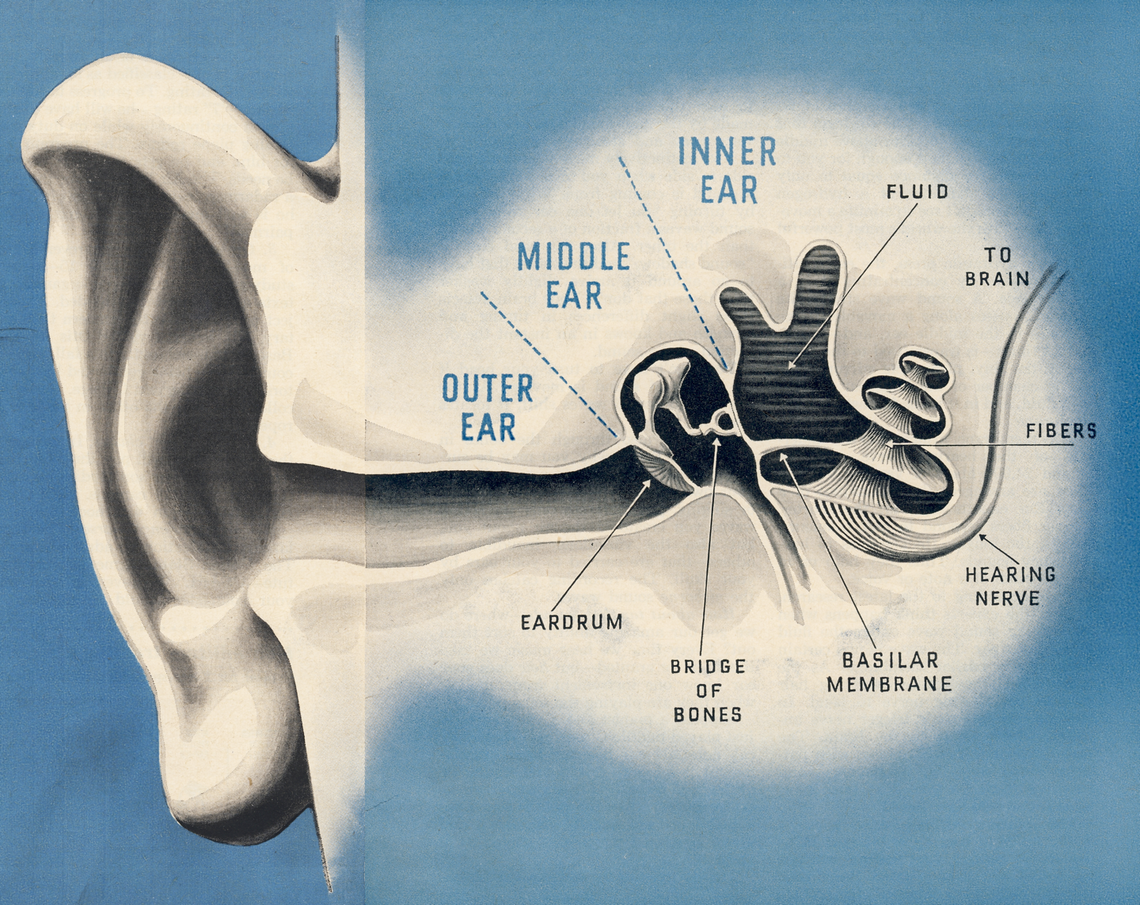Approximately 15% of American adults (37.5 million) 18 years old and over report some trouble hearing. Hearing impairment can lower the quality of life, impair participation in daily activities, and harm cognition. In adults, about 10% of hearing loss relates to noise exposure, the other 90% associated with aging. Normal hearing requires the healthy flow of blood to the ear, so factors that cause disease in the blood vessels, such as diabetes, can cause hearing problems. As part of discovering who is at most risk for hearing impairment, my colleagues and I asked if sleep apnea could affect hearing.

Hearing loss may occur when there is disease in the blood vessels supplying the inner ear, such as arteriosclerosis. Nerves of the ear can be damaged by excessive vibration such as chronic loud noise. Damage may also occur from the toxic effects of certain drugs such as antibiotics. Since sleep apnea increases the body’s levels of inflammatory proteins and the risk of arteriosclerosis, sleep apnea may also increase risk of hearing impairment. We also wondered if loud snoring, a symptom of sleep apnea, might increase the risk of hearing impairment, so we conducted a study.
At the AMERICAN THORACIC SOCIETY International Convention in 2014, our team presented findings from the Hispanic Community Health Study/Study of Latinos reporting on possible links between sleep apnea and hearing loss. This research, soon to be published in the Journal of Clinical Sleep Medicine, reported findings from a study involving Hispanic/Latino individuals from four US sites, a cohort of almost 14,000 individuals. The group studied was over 50% female and had a mean age of 41 years. After in-home sleep studies and hearing tests we found that almost 10% of the population had moderate sleep apnea (an apnea hypopnea index greater than 15) and 29% had some level of hearing loss. After considering other factors that might contribute to hearing loss (like age and smoking), the presence of sleep apnea was estimated to be associated with a 30% higher risk of any hearing impairment, with an increase in hearing impairment in both low and high frequency ranges. Furthermore, there was evidence for a dose-response relationship between increasing apnea hypopnea index and any hearing impairment. People with moderate sleep apnea had a 22% increased risk of hearing impairment while severe sleep apnea was associated with a 46% increased risk. The association between sleep apnea and hearing loss was found significant and independent of symptoms such as snoring, exposure to external noise and conductive hearing loss.
Low frequency and high frequency deficits reflect different possible causes for hearing loss. The finding of deficits in both low and high frequency ranges suggested that multiple factors associated with sleep apnea may contribute to hearing problems.
First, the findings broaden the set of outcomes that may be affected by sleep apnea to include hearing loss.
Second, audiologists caring for patients with hearing loss should screen their patients for symptoms of unrecognized sleep apnea-especially if other sleep apnea risk factors are present.
Third, patients with sleep apnea who experience hearing problems should discuss this with their doctors.
This is only one study and others need to be done to replicate and be confident of the findings. The study collected data at a single point in time, so it was impossible to know what came first- the sleep apnea or the hearing problem. The study showed an association but cannot prove that sleep apnea caused hearing loss. The specific mechanisms for hearing loss were not identified.
If you have experiences with sleep apnea, sleep apnea treatment, and hearing loss, please contribute to our forum discussion or leave a comment below. Please suggest future work in this area.
Blackwell DL, Lucas JW, Clarke TC. Summary health statistics for U.S. adults: National Health Interview Survey, 2012. National Center for Health Statistics. Vital Health Stat 10(260). 2014. (PDF)
Int J Audiol. 2015 Dec;54(12):958-66. doi: 10.3109/14992027.2015.1090631. Epub 2015 Oct 8.Cardiovascular risk factors and hearing loss: The HUNT study.
Original Abstract reference: http://www.eurekalert.org/pub_releases/2014-05/ats-sat051214.php (Engdahl B1, Aarhus L1, Lie A2, Tambs K1.)
Ear diagram is from "The inside of your ear" by Dan Century and licensed under CC BY 2.0.
This article was written by Amit Chopra, M.D., Pulmonologist at Albany Medical Center, NY, and Mark Hanson, SAPCON Patient Engagement Panel Member.
I have hearing loss as well as sleep apnea. Always thought it was just genetic, but have long believed my father also had sleep apnea. His snoring was like a freight train roaring through! My apnea was slow in being diagnosed for several reasons. I believe I had it from my teens. Hearing loss started in my 40s. Got me wondering now. :-)